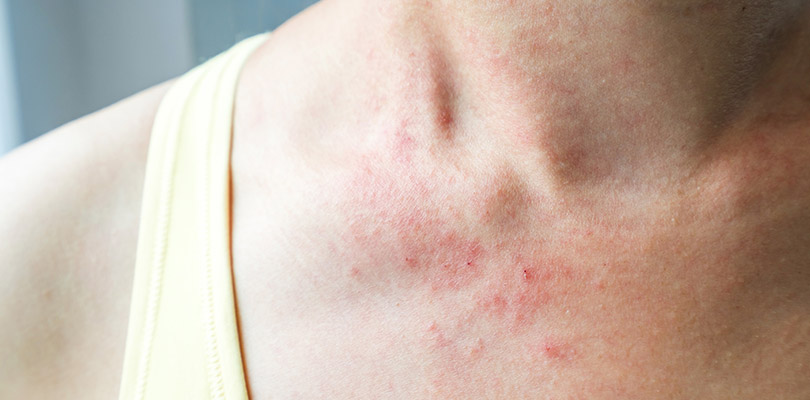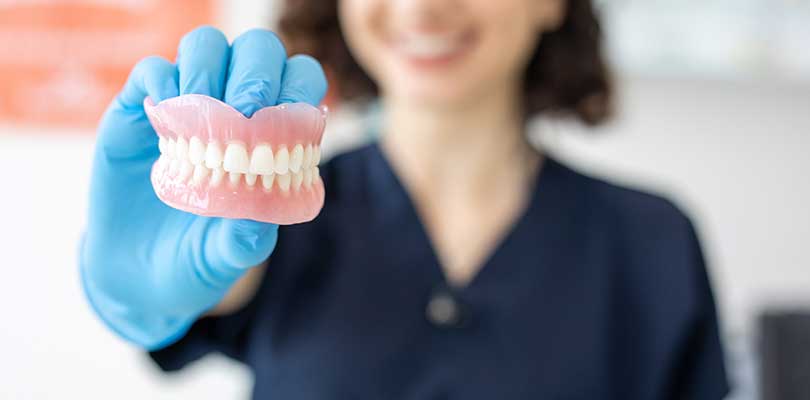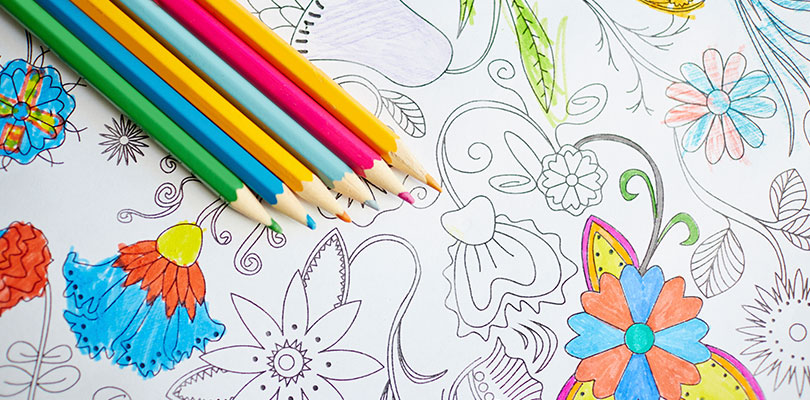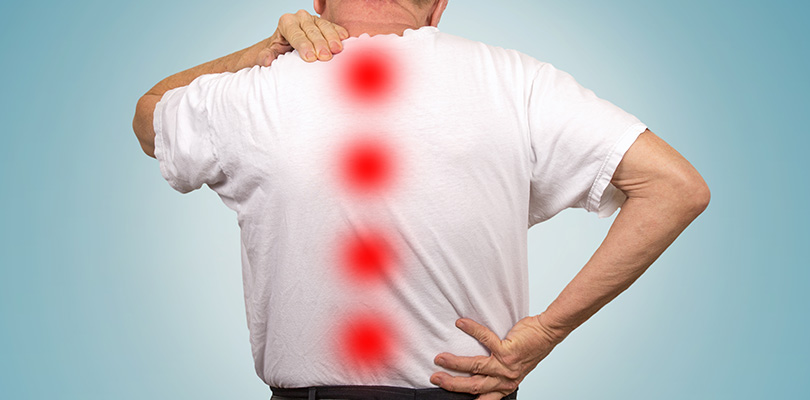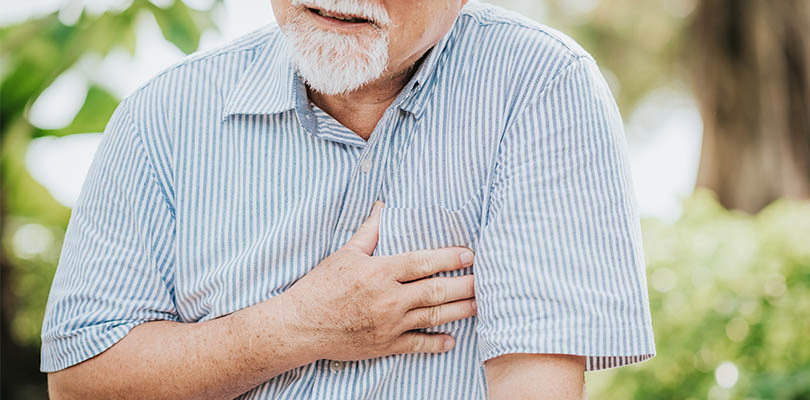9 Eczema Symptoms That Shouldn't Be Ignored
Tens of millions of people have eczema. This inflammatory skin condition is known for its flare-ups and range of symptoms. It can be hard to tell if these symptoms are the cause of eczema, or merely the result of dry skin.
Eczema is not contagious. The cause of root eczema is unknown, but research points at a combination of genetic and environmental triggers as the reason you may be prone to flare-ups.
This condition commonly occurs on the face, arms and legs. You’ll find it most often in the flexors of the body—the bends in your arms and the back of your knees. Babies and young children may experience eczema on their head, face and feet more often than other parts of their bodies.
Symptoms of Eczema to Be Aware Of
There are a few types of eczema, which causes it to present in a variety of forms. Symptoms are different for everyone affected by eczema.
Itching
Eczema is usually itchy, but generally stays in the mild to moderate range.
In some cases, the itch-scratch cycle can result. In this cycle, the itching becomes worse and scratching, though it momentarily relieves the itch, makes the inflamed skin bleed and amplifies eczema symptoms. If you scratch hard enough to break the skin, the open sores can become infected and lead to other issues.
Dry and Flaky Skin
This is a common symptom among various types of eczema, but a distinctive symptom with seborrheic dermatitis. This type of eczema is not the result of an allergy, but often appears on the scalp in the form of dandruff but can be present on other parts of the body, particularly around areas with oil glands. This symptom can be in the form of small, dry flakes to yellow, oily scales.
Round, Colored Patches of Skin
This symptom is distinguishable due to the coin-shaped spots that appear on the skin. Round lesions can form on the skin as a result of nummular eczema. This is generally a reaction to triggers like bug bites, scratches, or skin inflammation. Color of these lesions ranges from pink to red to brown.
Swelling
Swelling can be a symptom if there are circulation issues (usually in the legs). There can be pressure caused by blow flow problems that force fluid to leak out of the veins and into the skin. This is usually a symptom of stasis dermatitis.
Whether it is physically or mentally, everyone wants to be healthy. Find inspiration in this list of things healthy people do every day.
Rash
A rash is characterized by red and inflamed skin and can have bumps present in a variety of sizes. This could be a symptom of contact dermatitis—where your skin touches an allergen or irritant. Rashes itch and perhaps burn, especially in areas where the skin is thinner (for example, the eyelids).
Bumps or Blisters on the Skin
Small blisters are a common symptom of dyshidrotic eczema. Red or clear fluid-filled bumps appear on the sides of the fingers, toes, palms, and bottom of the feet. When scratched, they can become weepy (wet) sores.
Skin that becomes infected with the virus that causes cold sores is called eczema herpeticum. While less common than other symptoms, this infection can also have fluid-filled blisters and come with fever, fatigue and swollen glands. Treatment of this issue should be immediately before infection worsens and spreads to internal organs.
Oozing or Crusting
These are symptoms of severe eczema when your skin cracks and oozes. It may also be the result of scratching, where weepy sores leak and crust over when they dry.
Leathery Skin
Long-term itching or rubbing of the affected skin can create thick, leathery areas, which may possibly lead to neurodermatitis. These patches can become red and darker than the rest of your skin and result in permanent changes of color.
Eye Complication
Rare cases of severe eczema may cause eye-watering, discharge and inflammation around the eye. Eyelids can become puffy, red and itchy. These symptoms can potentially lead to permanent eye damage, which is why you should not disregard any symptoms that occur in the area.
Eczema and Flare-ups
Eczema happens in cycles. Sometimes your skin feels fine, and other times it becomes itchy and changes color and texture.
These flare-ups are the result of triggers that aggravate your eczema and include things like stress, excessive heat, lotion or cleansers, sweat, or even types of fabric that comes into contact with your skin. With eczema, your skin is more sensitive and scratching only makes the skin condition worse.
Treatment for Eczema Symptoms
There is no cure, but there are treatments available to help manage eczema symptoms.
There are over-the-counter remedies, topical medications, phototherapy, immunosuppressants and biologic drugs available to help alleviate symptoms. Always use medication, or follow a treatment plan, as prescribed by your doctor.
There are also natural and alternative treatments available, such as applying coconut oil or turmeric to the affected areas. Preventative measures you can take are moisturizing your skin a couple of times a day to lock in moisture, avoid triggers that aggravate your condition, switch to gentle products and shorten your bath or shower time.
If possible, find out your eczema triggers (an allergy test will help you narrow down the list), so you can avoid them. The only way to be certain that your symptoms are the result of eczema is to see your doctor and get a proper diagnosis.
Many eczema symptoms are easily managed. The ability to identify areas of skin that may be affected by eczema will help you determine whether it is something you should consult your doctor about, or simply treat as dry skin. And as satisfying as it is in the moment, try to refrain from scratching the affected areas; your skin will thank you for it.
